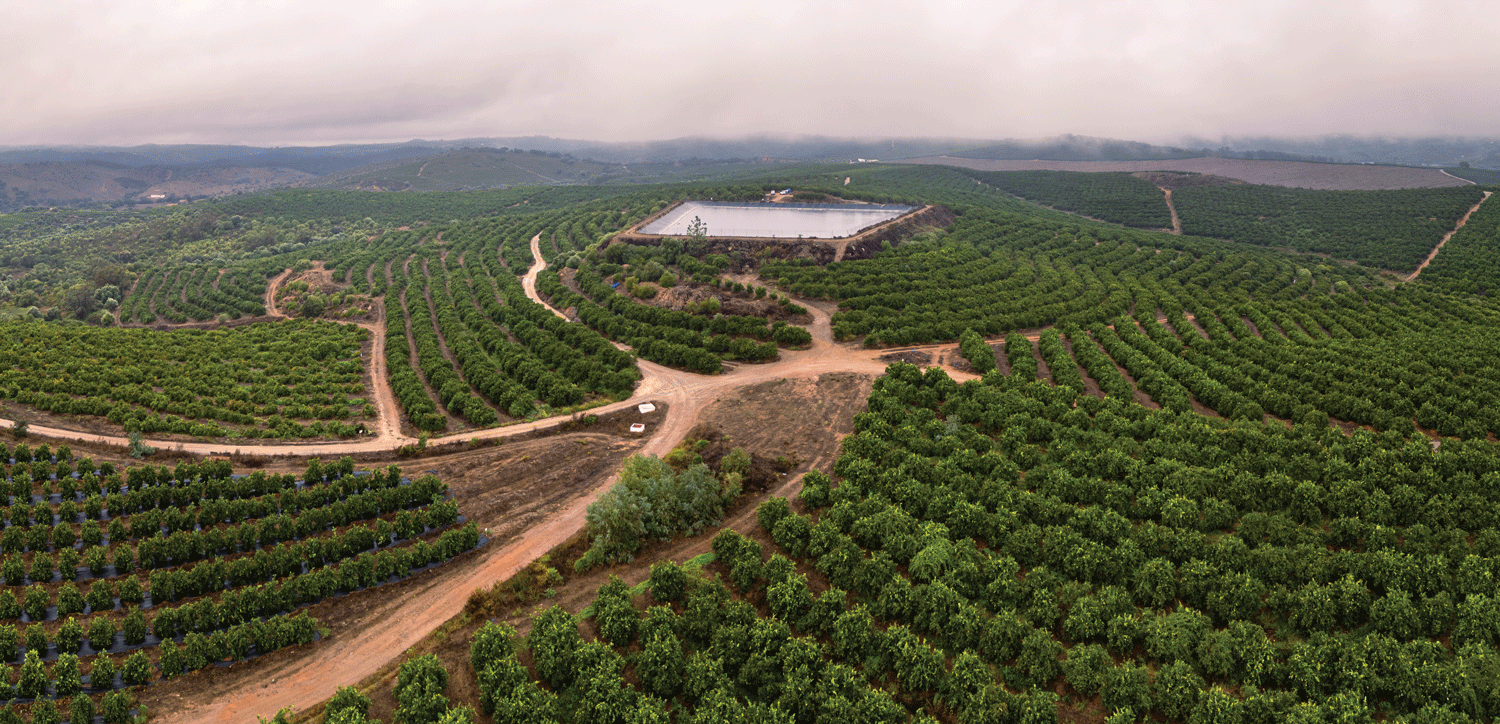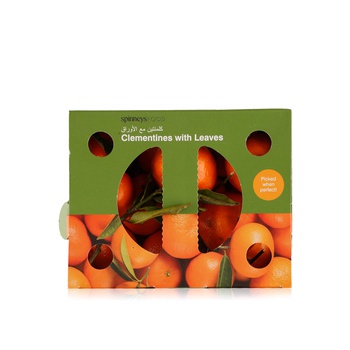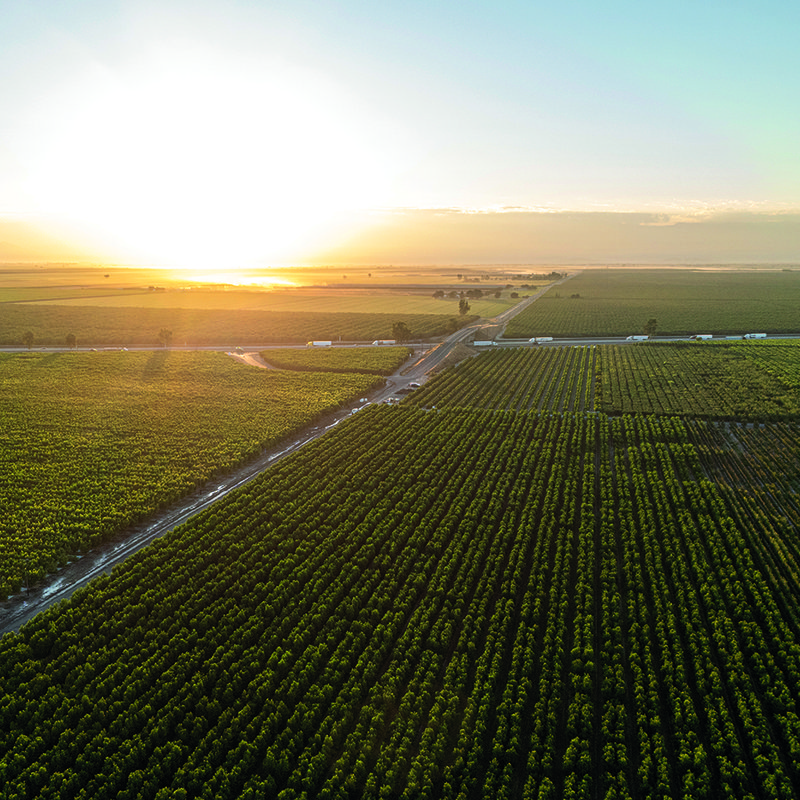The Rio Tinto is a river named for its reddish tint, running through Huelva province in the southwest corner of Spain. The surrounding hills are so rich in mineral deposits that the area has been mined by multiple cultures over millennia – Phoenicians, Romans, Visigoths, Moors, etc. A British company bought the rights and implemented superior technology in the 19th century, planting fast-growing pine trees all around for timber to support their deep and extensive mining tunnels. When they left in the 1970s, the land was considered useless.
Then along came a young agronomist named Carlos Morera. “A unique man, at a unique moment,” as Derek Davis puts it, picking up the story in his capacity as long-standing commercial director of the Rio Tinto Fruit Company. “He was from Valencia, where they traditionally grow a lot of citrus, and he saw all the chemicals being used in farming. He worried about the future even back in the 1980s and he wanted to change things.”
Consulting the logbooks of British surveyors, with their records of humidity, rainfall, wind direction and temperature dating back a century or more, he carefully studied the topography and realised that he could grow citrus on this elevated, isolated terrain. “Here, in the middle of nowhere,” says Derek. What we now call organic farming was practically unheard of when Rio Tinto began operations in the early 90s, but for Carlos “it was always on the cards”.
As Derek speaks so admiringly of his boss, who is now quite elderly and “not so hands-on anymore”, he is surrounded by orange trees that cover almost 2,000 hectares. The company now produces some 30 million kilogrammes of citrus per year, all of it 100 per cent organic.
Most of Spain’s industrial orange and lemon farming happens a long way to the east and a lot closer to the Mediterranean, often on ground that has been practically terraformed to flatten the fields. But this site is some 70 kilometres inland and 400 metres above sea level, more subject to the wet and windy conditions of the Atlantic than the soft breezes of the Med. Carlos Morera’s foundational concept was to actively use the natural contours of the terrain, maximising the space and time available to let the fruit fully ripen.
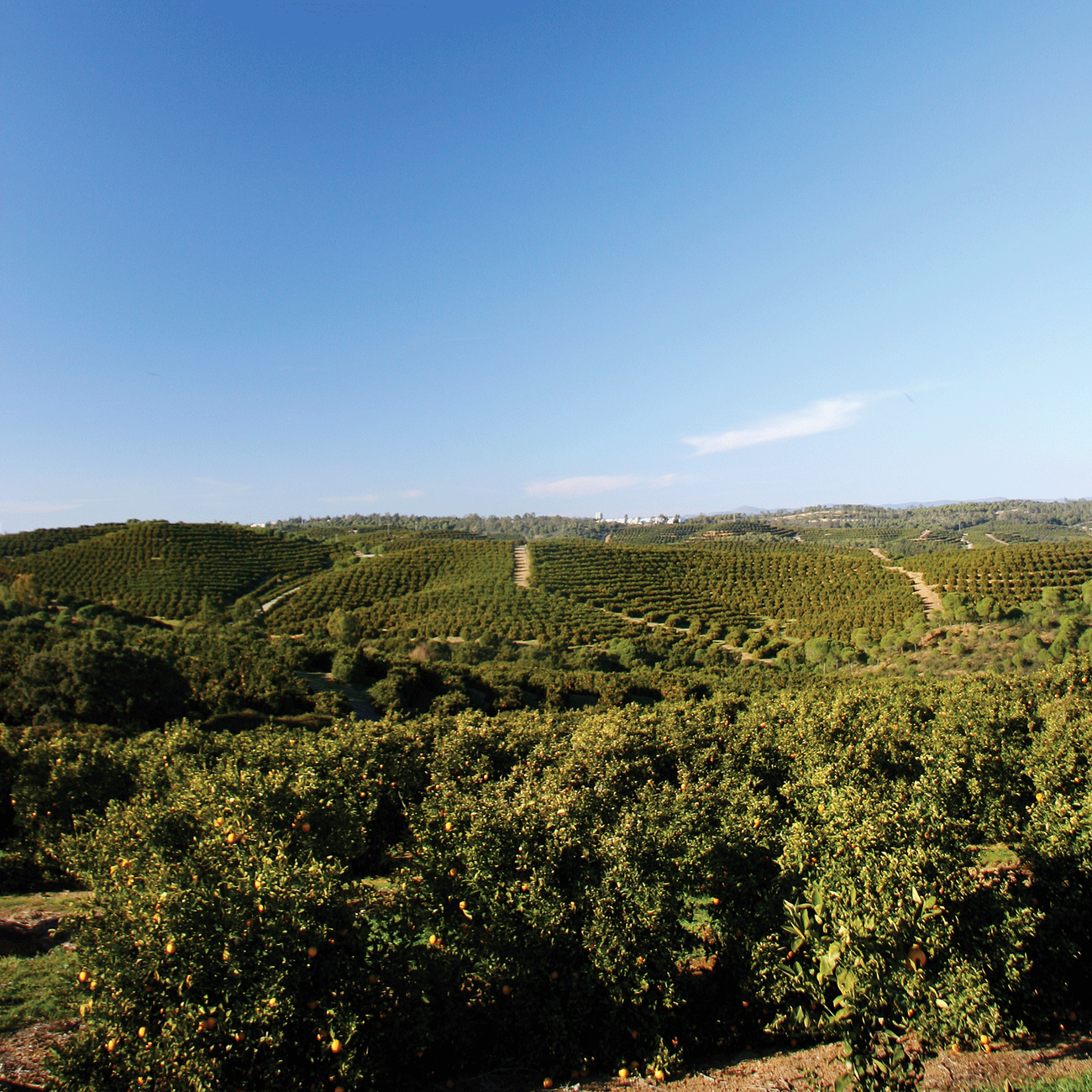
Organic orchards cover approximately 2,000 hectares of land in Huelva province
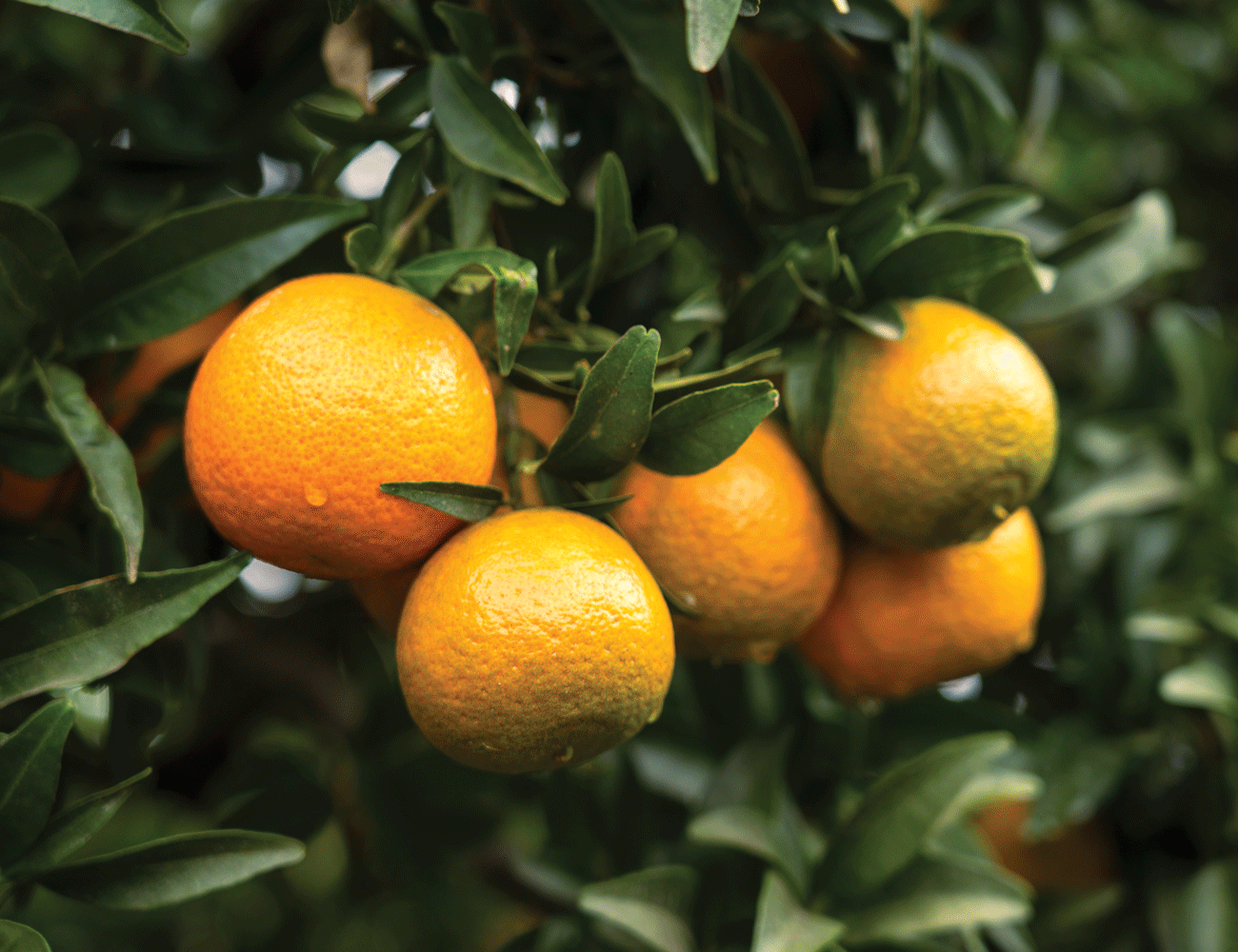
Although their yields are smaller than conventional farming, growing citrus in the hills translates to more flavour
“By working with the land in that way, you can start growing a particular variety high up, facing south, then end up low down, facing north. Where an ordinary variety might grow for two or three weeks, here you can make it last two months, or three.”
The yields are smaller, admits Derek, but the quality is higher. “At this altitude we’re growing what you call ‘hill fruit’, where you have the biggest difference between night-time ‘cold’ and day-time ‘warm’. In citrus terms, that equates to flavour and finesse.” And the upshot from a commercial point of view is that Rio Tinto can keep up a steady supply for much of the year.
“The whole idea was, if you’re going organic then you have to be able to deliver all season. It’s no good saying ‘I’ve got five weeks’ worth of crop here’, because a supermarket can’t react to that in time. But if you can deliver soft citrus and oranges from October to June, then they start to listen.” Spinneys, indeed, has come to rely on Rio Tinto for its wide range of premium organic oranges, mandarins, tangerines and clementines, seasonally divided into “pre-” and “post-Christmas” fruits, and into varietals such as Clemenules and Nadorcott.
Derek himself comes from a market background, having grown up in London and spent his youth unloading delivery trucks in Covent Garden Market. He later moved to Spain and started buying fruit for UK-based companies. “When I came to this area, and met Carlos, and saw what he had done here, I was immediately taken, and I joined him straight away.”
The sheer distance from the rest of Spain’s citrus-farming infrastructure makes the job harder in some ways. “There were loads of problems in the beginning, and some of them we still have to deal with. Around Valencia you can order black boxes and have them the same evening, but here they might take three days to arrive.”
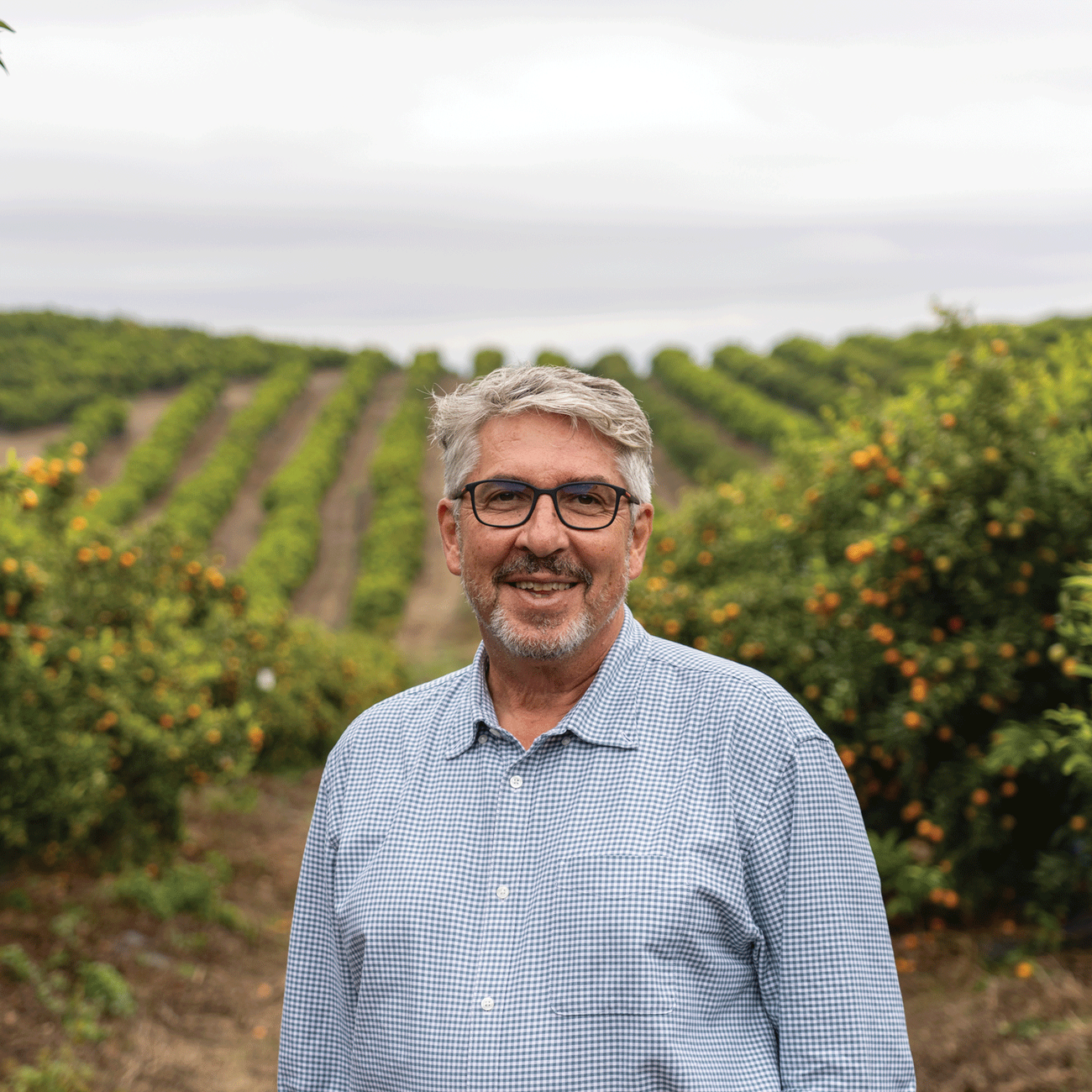
Derek Davis
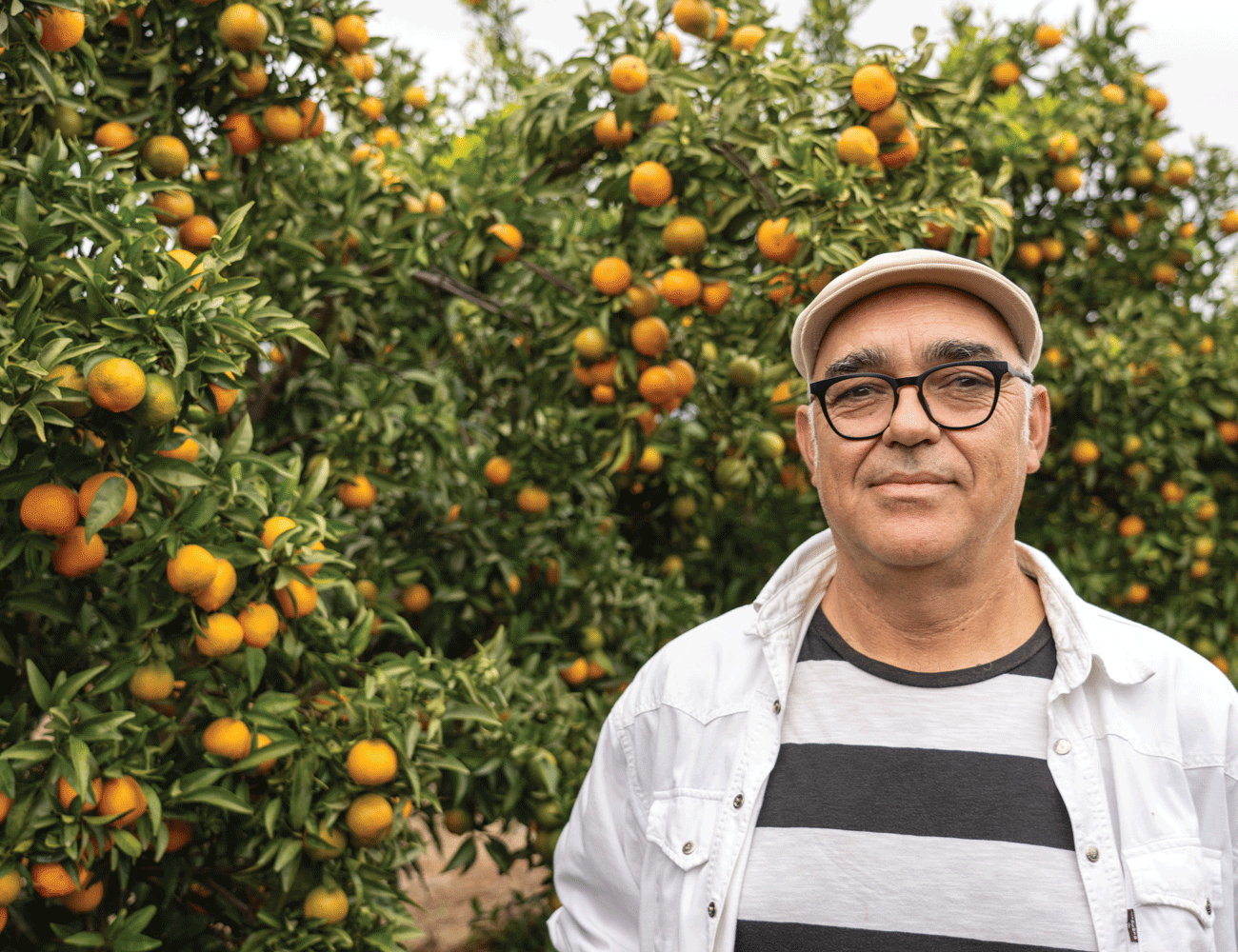
Antonio Martinez
At the same time, the unique features he fell in love with all add value, from the landscape itself to the minutiae of the operation. “You don’t see anything like it anywhere else.” Farm director Antonio Martinez can vouch for this, after 31 years on the property.
“I love this countryside, and the fact that we haven’t transformed it,” says Antonio. “We respect it in a much more ecological way.” The onsite insectarium is a core example – where pumpkins are used to cultivate predatory wasps and other such “beneficial insects” that can then be deployed against parasites as and when needed.
“We keep a careful eye on the rainfall, the wind, the temperature, so that we know when there might be more pests and we can control the populations. We are the only ones doing this.” As long as their numbers are kept within reasonable limits, the insects are allowed to go about their business, and there is never any recourse to chemical agents. “We have more than 100 people out here just counting bugs on the trees,” says Derek. “If they get too many we can release the ones that eat them and redress the balance a bit, help nature apply its own remedies.”
The land itself provides certain advantages, too – frost doesn’t settle on these hills, angled as they are, and past mining operations created a whole lake out of a nearby tributary to the Rio Tinto. “We have so much water here that if there was a drought for seven years we’d still have enough.” Careful water management is nonetheless part of a sustainability strategy that includes electronic probes to measure stem water potential and humidity in the leaves.
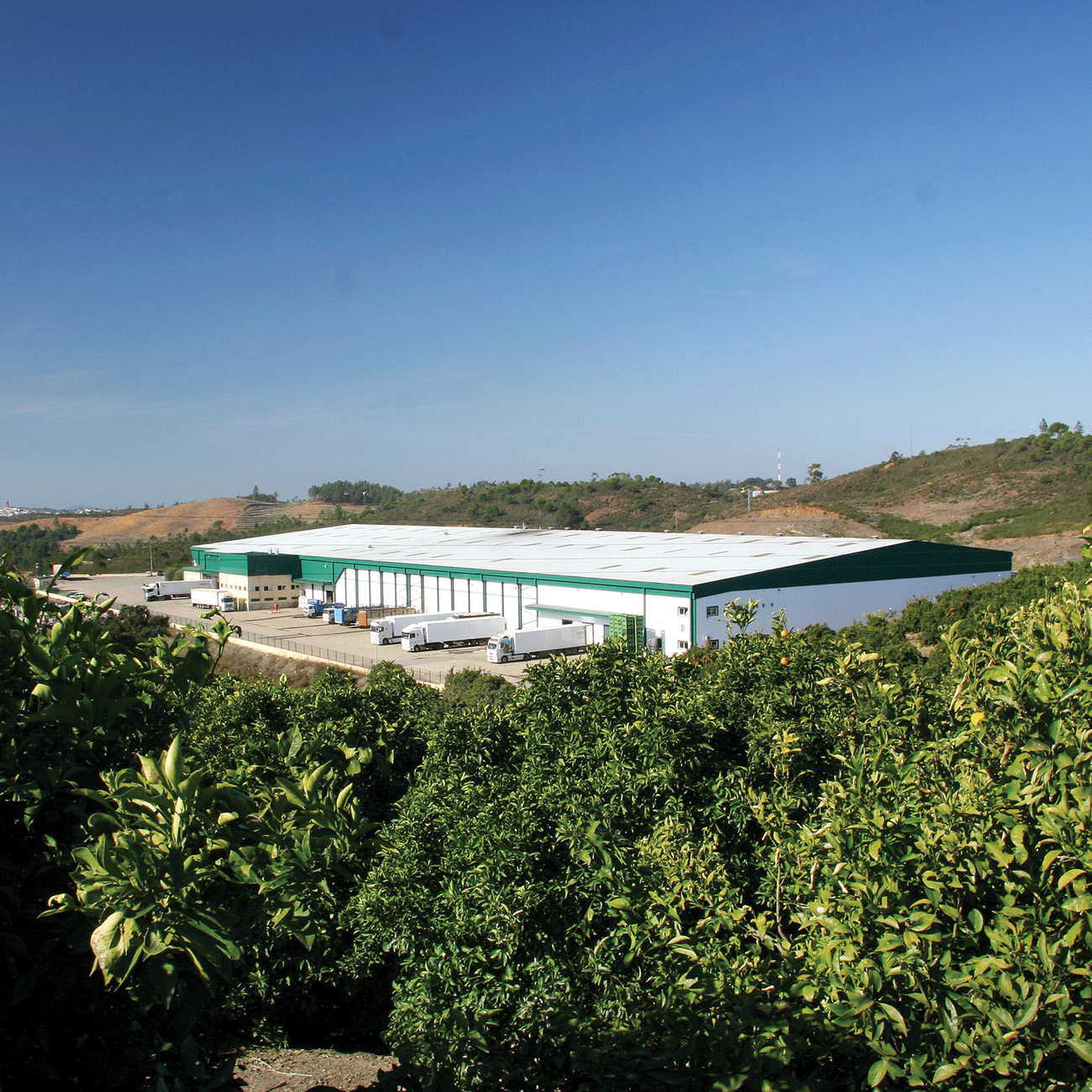
A packhouse amid the orchards reduces the company’s carbon footprint
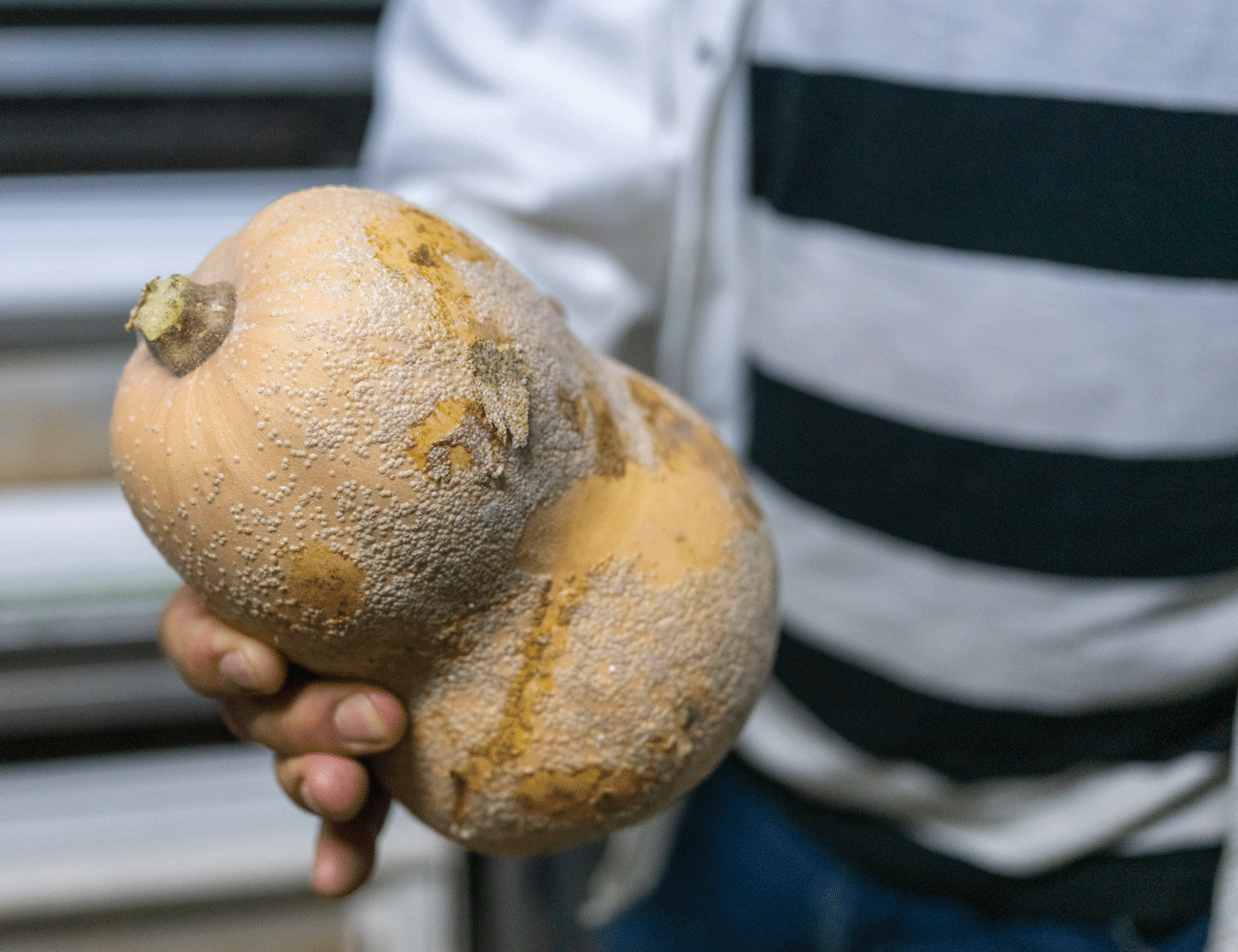
Pumpkins are used to cultivate beneficial insects in the insectarium
Solar panels are deployed throughout, with the unusual measure of building a packhouse amid the growing fields. This inevitably reduces the carbon footprint, as “you don’t have lorries driving around between sites,” says Derek. Reductions in time and distance from picking to processing, is everything when you’re not using any artificial means to prolong the shelf life of the product.
“When you pick that fruit, it’s a ticking clock. We want to get each piece to the person who is going to consume it as quickly as possible. First we let it naturally mature, leave it on the tree as long as we can, but then we can have it picked, washed, packed, prepared and out to you in Dubai within 72 hours.”
When you eat an orange or mandarin from Rio Tinto Fruit Company, it’s worth bearing in mind that you’re not only eating something that is better for you, but it is also better for the earth.
Again, he is not here to bash conventional farming, but to express a certain pride in making organic produce available and affordable, at such scale. And all of this, says Derek, is traceable back to one young agronomist, who looked at land used up by the past, and somehow saw the future.
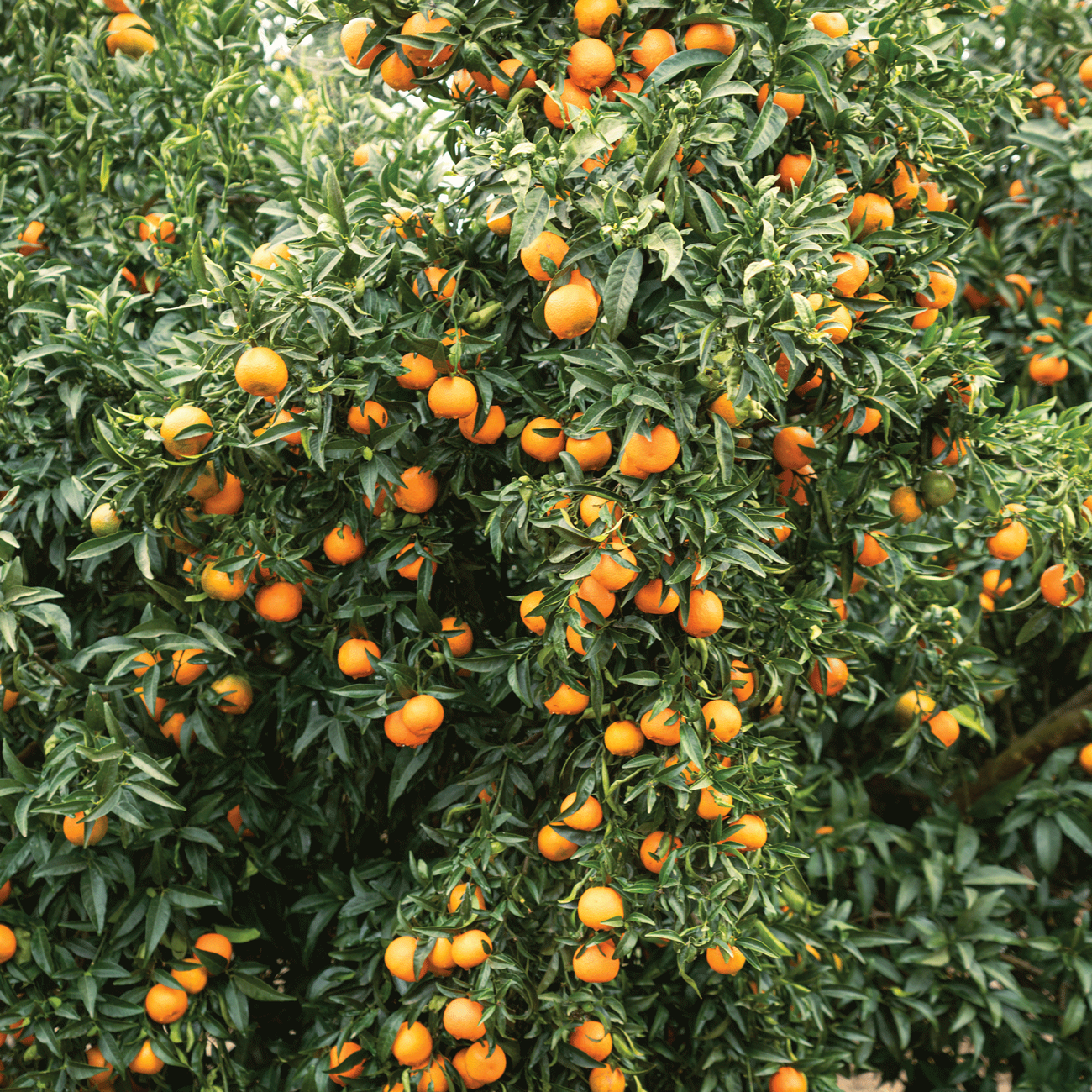
Fruit are left to mature on trees for as long as possible
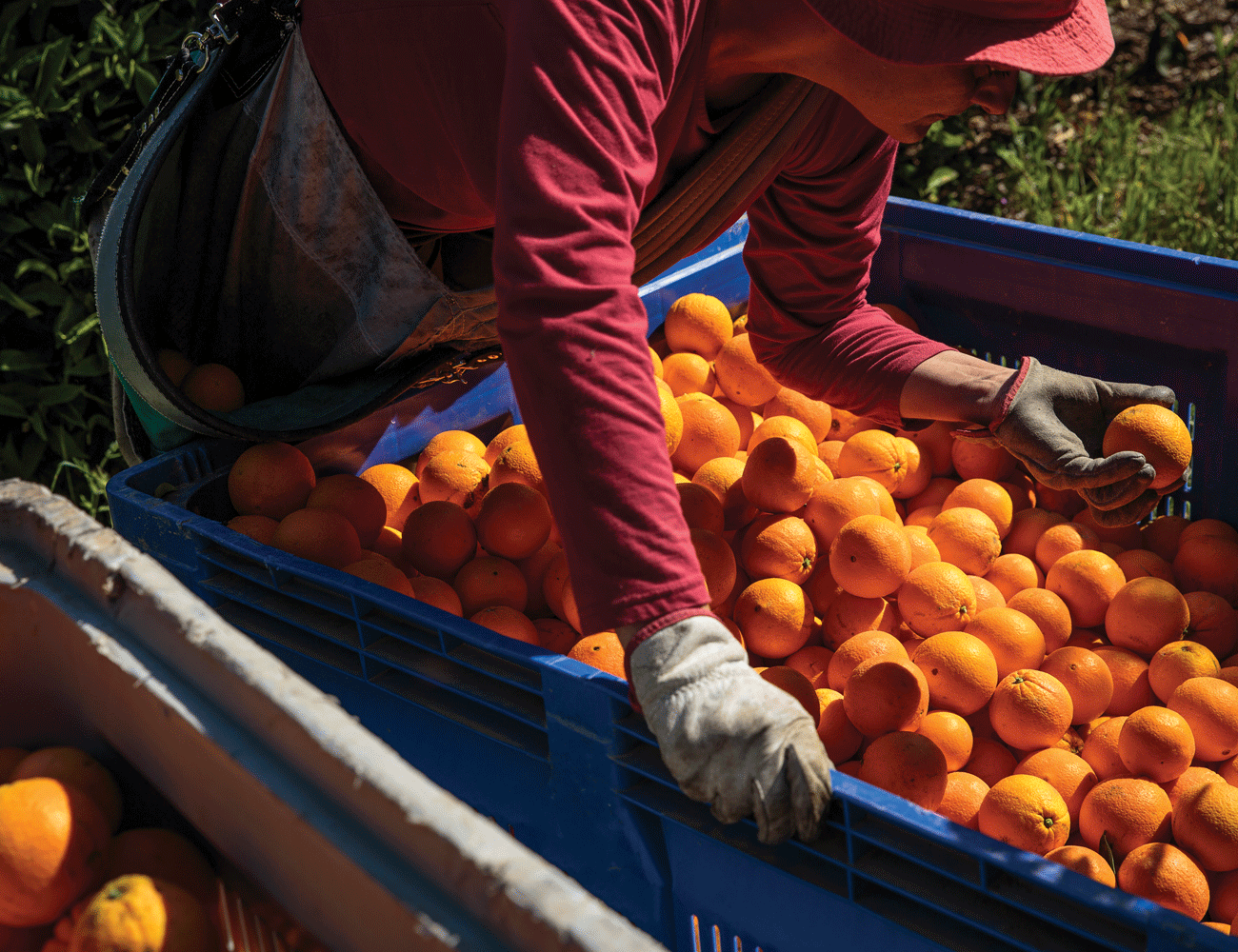
Organic citrus reaches Dubai within 72 hours of being harvested
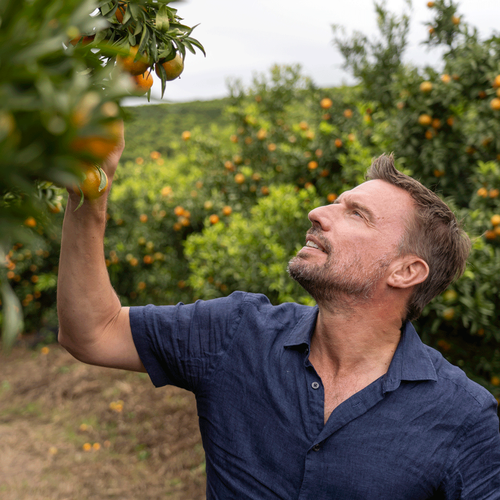
Produce commercial manager
Neil Gibson says
I’ve worked with these growers for 10 years. I was blown away by the beauty of their property and their approach to farming. The Rio Tinto team specialises in creating an eco-system where everything works together in harmony. They offer fantastic varieties – all of which are grown for flavour. And because they’re organic, we’re getting fruit that is not only good for us, but good for the environment, too. This year, we will have clementines, lemons and oranges, all with leaves, from their farm.
